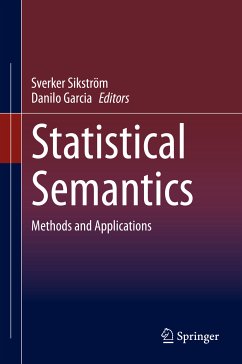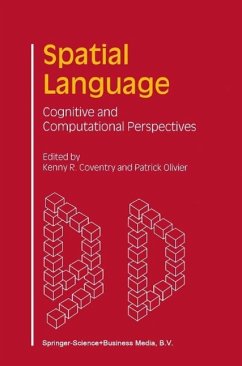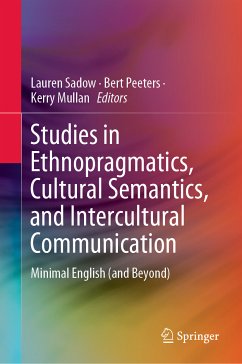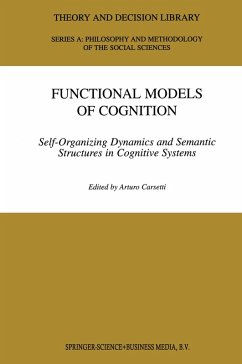
Statistical Semantics (eBook, PDF)
Methods and Applications
Redaktion: Sikström, Sverker; Garcia, Danilo
Versandkostenfrei!
Sofort per Download lieferbar
104,95 €
inkl. MwSt.
Weitere Ausgaben:

PAYBACK Punkte
52 °P sammeln!
This book discusses the application of various statistical methods to texts, rather than numbers, in various fields in behavioral science. It proposes an approach where quantitative methods are applied to data whereas previously such data were analyzed only by qualitative research methods. To emphasize the quantitative aspects of semantics, and the possibilities of conducting scientific interferences, the book introduces the concept of statistical semantics and presents the reader with a subset of techniques found in that domain. More specifically, the book focuses on methods that allow the in...
This book discusses the application of various statistical methods to texts, rather than numbers, in various fields in behavioral science. It proposes an approach where quantitative methods are applied to data whereas previously such data were analyzed only by qualitative research methods. To emphasize the quantitative aspects of semantics, and the possibilities of conducting scientific interferences, the book introduces the concept of statistical semantics and presents the reader with a subset of techniques found in that domain. More specifically, the book focuses on methods that allow the investigation of semantic relationships between words, based on empirical corpus data. It shows the reader how to apply various statistical methods on texts, for example statistical tests to ascertain whether two sets of text are statistically different, ways to predict variables from text, as well as how to summarize and graphically illustrate texts. Thus, the book presents an accessible hands-on introduction to a selection of techniques, indispensable for cognitive psychologists, linguists, and social psychologists.
Dieser Download kann aus rechtlichen Gründen nur mit Rechnungsadresse in A, B, BG, CY, CZ, D, DK, EW, E, FIN, F, GR, HR, H, IRL, I, LT, L, LR, M, NL, PL, P, R, S, SLO, SK ausgeliefert werden.











